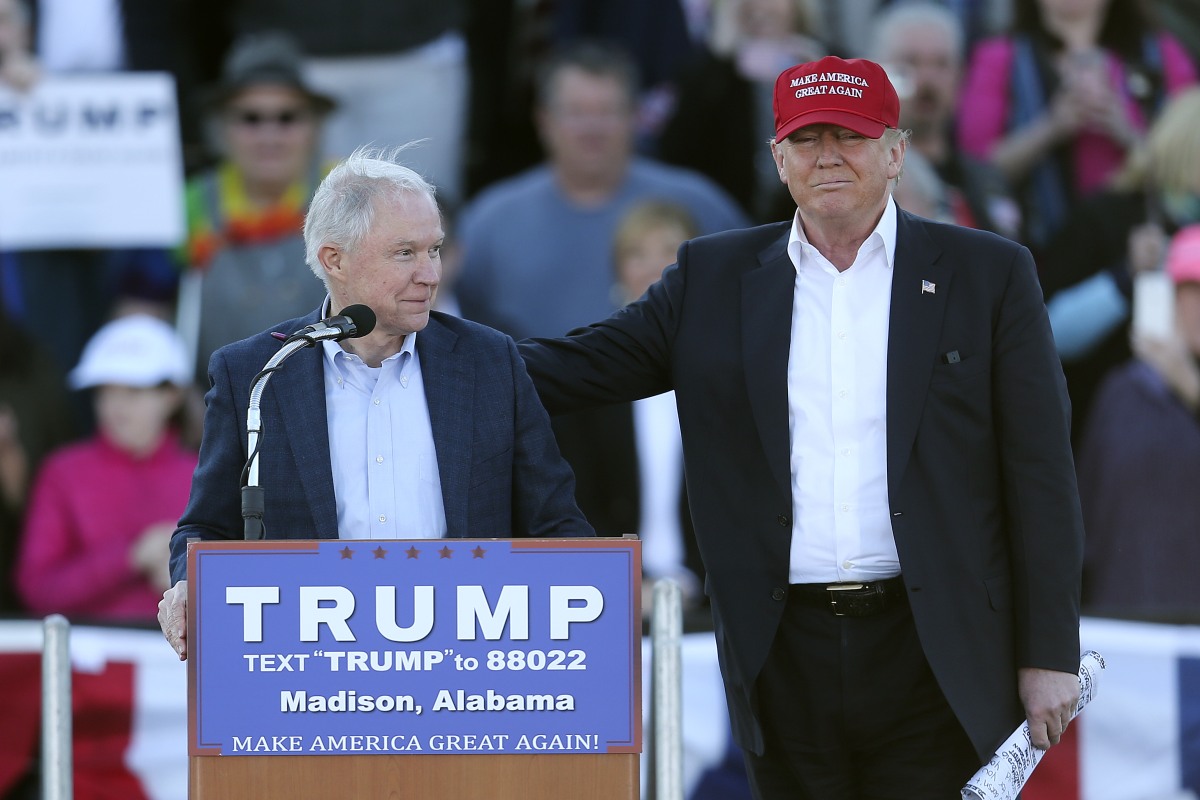 One of the decisive moments in the 2016 election campaign came last summer, when major insurance companies cut back their involvement in the Affordable Care Act exchanges after claiming they were losing money in the market. This was seized on by Trump and other Republicans to further denigrate the ACA and argue the need for repeal and replace.
One of the decisive moments in the 2016 election campaign came last summer, when major insurance companies cut back their involvement in the Affordable Care Act exchanges after claiming they were losing money in the market. This was seized on by Trump and other Republicans to further denigrate the ACA and argue the need for repeal and replace.
Evidence has now emerged suggesting that the insurers’ claims were more of the lies that tainted the whole campaign and that those lies were motivated by an attempt to influence the federal government’s policy on mergers.
What was often overlooked during discussions of the health insurance industry last year was that the biggest concern of the major firms was the fate of their attempt to capture greater market share through giant acquisitions. Aetna was seeking to acquire Humana, and Anthem wanted to join forces with Cigna. The two proposed deals, worth about $85 billion, would reduce the number of major players to three (the other being UnitedHealth).
The Obama Administration and multiple states challenged the mergers, which ended up in court. Recently a federal district court judge sided with the Justice Department in the Aetna-Humana case; another judge is expected to rule soon on the Anthem-Cigna deal.
In his 158-page ruling on the Aetna matter, U.S. District Judge John D. Bates cited evidence indicating that the company’s decision to leave ACA exchanges in 17 counties in three states (Florida, Georgia and Missouri) was designed to “improve its litigation position.” In other words, its main reason for dropping out was not the profitability of those markets but rather the attempt to make it more likely that the Humana acquisition would be approved.
The opinion reveals (on p.125) that when Aetna met with officials at the Justice Department and the Department of Health and Human Services prior to the filing of the government’s complaint it “connected this lawsuit with its future participation in the exchanges” and threatened (p.126) to withdraw from those exchanges if the merger were not approved.
Also included in the opinion is an excerpt (p.127) from an e-mail in which Aetna CEO Mark Bertolini stated that “the administration has a very short memory, absolutely no loyalty and a very thin skin.” Asked in a deposition what he meant by that, Bertolini expressed resentment that the administration was opposing the merger despite Aetna’s role in supporting the ACA during the battle over its enactment.
The judge went on to cite (p.129) internal company e-mails in which, in the words of the opinion, “Aetna executives tried to conceal from discovery in this litigation the reasoning behind their recommendation to withdraw from the 17 complaint counties.” That effort was unsuccessful.
Overall, the court found that the exchange counties from which Aetna was withdrawing were a mix of profitable and unprofitable ones, thus undermining the claim that the move was purely a business decision.
While Aetna’s deception failed to sway the government or the lawsuit, it had a significant political impact amid a heated campaign. Now that the campaign is over and the ACA opponents prevailed, Aetna and the other insurance giants are staying silent as Republicans move to gut the law.
It’s unclear whether the firms expect the exchanges to survive in some form or they are rooting for a return to the old days of minimal regulation. In either event, it’s clear that companies like Aetna and Anthem are putting their desire for oligopolistic control above all else.
 $335 billion: that’s what has been paid by companies in fines or settlements in cases brought by federal agencies and the Justice Department during the Obama Administration. The estimate comes from the amounts associated with entries already in
$335 billion: that’s what has been paid by companies in fines or settlements in cases brought by federal agencies and the Justice Department during the Obama Administration. The estimate comes from the amounts associated with entries already in  With all that’s happening in the chaotic Trump transition, less attention is being paid to the
With all that’s happening in the chaotic Trump transition, less attention is being paid to the  Much has been made of President-elect Trump’s use of his bully Twitter pulpit to get companies such as Carrier and Ford Motor to adjust their investment plans and to warn military contractors about escalating costs. The Washington Post went so far as to publish a
Much has been made of President-elect Trump’s use of his bully Twitter pulpit to get companies such as Carrier and Ford Motor to adjust their investment plans and to warn military contractors about escalating costs. The Washington Post went so far as to publish a